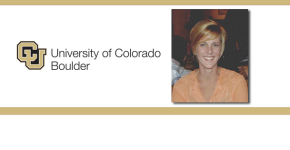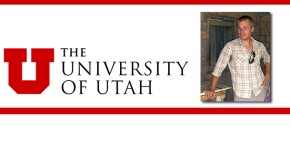Category: Anthropology
-

Rhonda Quinn, Seton Hall – Evolutionary Catalysts
A variety of factors influenced our human evolution. Rhonda Quinn, an assistant professor of sociology, anthropology, and social work at Seton Hall University, is studying the relationships our first use of tools by our human ancestors shares with evolution. Rhonda Quinn studies the interaction of modern and extinct humans with the environment. Her primary research…
-

William Parker, Duke University – Historical Stress
Are we more or less stressed than our ancestors? William Parker, association professor in the Department of Surgery at Duke University Medical Center, examines this question – and the results are pretty surprising! William Parker has worked at Duke University Medical Center for more than 20 years, focusing on the immune system and how immune function…
-

Scott McGraw, OSU – Bitter Side of Cocoa
Is the production of chocolate having a negative impact? Scott McGraw, an anthropologist at The Ohio State University, is studying the dark side of cocoa farming. W. Scott McGraw is a professor in the Department of Evolution, Ecology and Organismal Biology at The Ohio State University. There, he is an evolutionary anatomist and primate behavioralist with primary research…
-

Lori Hunter, UC Boulder – Environmental Migration
Climate change and the environment at large have a huge effect on everything. Lori Hunter, sociologist at UC Boulder, discusses the relationship between human migration and the natural environment, highlighting innovative research on US-Mexico migration associated with climate change. Dr. Lori Hunter is Professor of Sociology at the University of Colorado Boulder and Faculty Research…
-

Ryan Schacht, Utah – Sexual Ratios
The nature of your surroundings might dictate your desires. Ryan Schacht, post-doctoral research fellow at University of Utah, is studying our reproductive goals in relation to availability. Ryan Schacht‘s research explores variability in behavior within and between groups. Currently, Ryan is studying how people make reproductive decisions and how individual and contextual differences influence behavior.…
-

Greg Bell, Winthrop University – Day to Day Life of Medieval Crusaders
Depictions of The Crusades usually entail throngs of pillaging troops sacking cities and running amok. Greg Bell, a medieval history expert at Winthrop University, offers an interesting profile of The Crusades, focusing on the time off the battlefield. A medievalist at heart, Dr. Greg Bell is fascinated with cultural interaction around the Mediterranean from Antiquity…
-

Glenn Geher, SUNY New Paltz – Neanderthal DNA
Are you a Neanderthal? According to Glenn Geher, psychologist at New Paltz, you might very well share some DNA with these ancestors of ours. Glenn Geher is professor and chair of Psychology as well as director of Evolutionary Studies at SUNY New Paltz. He has taught several courses at the undergraduate and graduate levels—including Statistics,…
-

Davide Zori, Baylor University – Viking Social Standing
When one thinks of Vikings, lavish dinner parties are probably not the first thing that come to mind. But, Davide Zori, a professor at Baylor University, will tell us: vikings were really into parties. Davide Zori is assistant professor in the Baylor Interdisciplinary Core at Baylor University. His research concentrates on the Viking expansion into…
-

Richard Veit, Monmouth University – Joseph Bonaparte’s Point Breeze Estate
Joseph Bonaparte is probably most notably known as Napoleon’s older brother, but his cultural significance goes much further than his famous family. Richard Veit, an anthropologist at Monmouth University, offers an historical profile of Point Breeze, the lavish garden he brought to life on his New Jersey estate. Richard Veit is Professor of Anthropology and…
-

Lucy Thairu, Stanford University – Infant Mortality in Africa
As it continues to be an issue worldwide, a great deal has been written about infant mortality. Lucy Thairu, an assistant consulting professor at the Stanford University School of Medicine, details this ongoing problem as it occurs on a small African island. Dr. Thairu obtained a Masters’ degree in Biochemistry in France then an MSc.…
